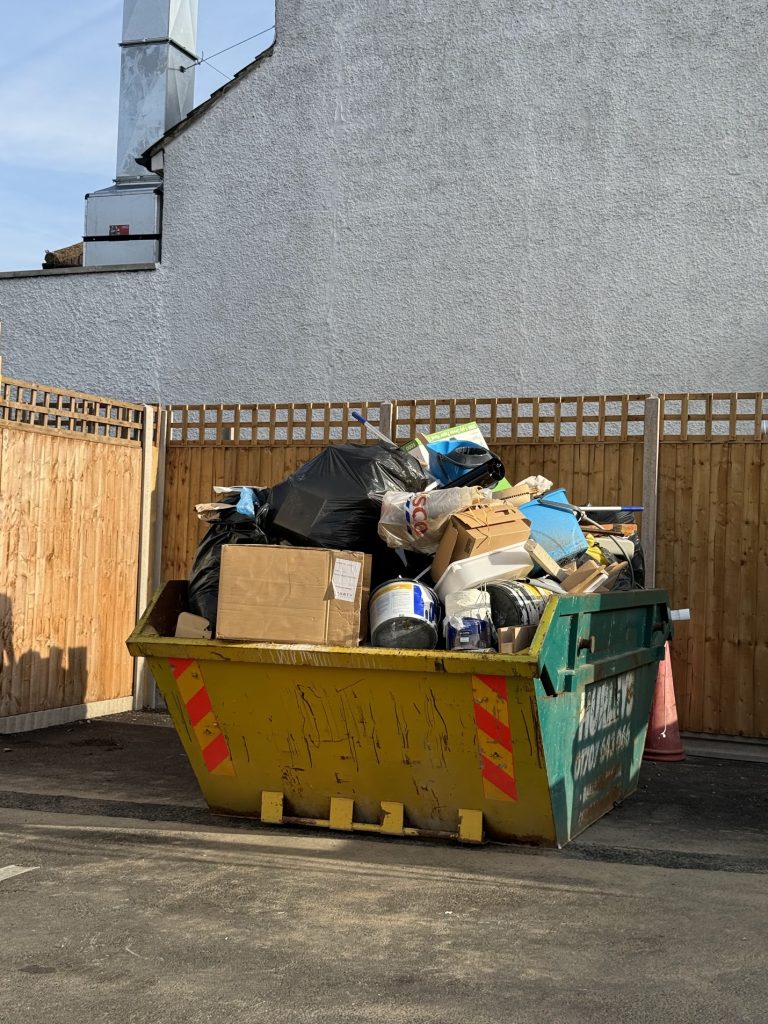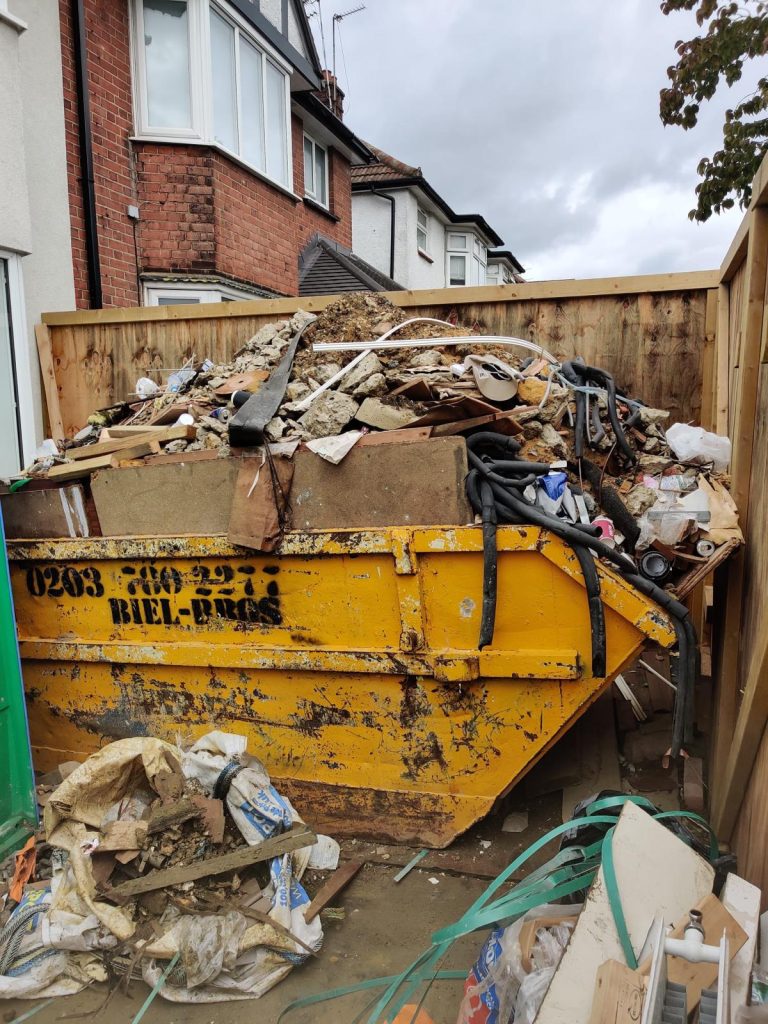Home » Waste Management Guides » 10 Common Mistakes to Avoid When Hiring a Skip
Hiring a skip is one of the easiest ways to manage waste during a home renovation, garden clearance, or building project. But if you’re not careful, small mistakes can lead to extra costs, legal issues, or delays that slow your project down.
To help you get the most out of your skip hire and avoid costly surprises, we’ve outlined the 10 most common mistakes people make — and how to avoid them.
A common mistake is underestimating how much waste your project will generate. If you hire a skip that’s too small, you might end up needing a second one — which costs more and adds time. Going too large, on the other hand, means paying for space you don’t use.
How to avoid it:
Clearify can advise you on the best size skip to match your needs and help you avoid overpaying or under-ordering.

Each skip has a maximum fill line for safety reasons. Overfilling a skip can lead to collection being refused or additional charges due to the risk it poses during transport. It’s also illegal to transport an overloaded skip on public roads.
How to avoid it:
Not all waste can go in a skip. Hazardous or restricted items such as asbestos, electrical appliances, tyres, and certain chemicals must be disposed of separately and legally.
Common prohibited items include:
How to avoid it:
If you don’t have a driveway or private land to place your skip on, and need to put it on a public road or pavement, you’ll likely need a skip permit from your local council.
How to avoid it:
Clearify can organise permits on your behalf to keep things simple and compliant.
Skip hire is in high demand during spring, summer, and bank holiday weekends. Leaving it until the day before you need it could result in limited availability or premium pricing.
How to avoid it:

Skips need to be placed in areas with good access for delivery and collection. If there are parked cars, locked gates, or other obstructions, the driver may not be able to deliver or collect the skip — and you may be charged a failed delivery fee.
How to avoid it:
Different waste types require different skip types. For example, heavy materials like soil and bricks can only go in certain sizes (usually 6 or 8 yard skips) due to weight limits.
How to avoid it:
Most skip hire companies offer skips for 7 to 14 days as standard. Keeping it longer may incur daily rental charges or delay your project if you miss collection dates.
How to avoid it:
Not all skip hire companies offer the same level of service. Some may charge hidden fees, use unlicensed waste carriers, or fail to deliver on time.
How to avoid it:
At Clearify, we work with trusted local providers to give you reliable service at the best possible price.
This one’s more serious than most people realise. If your waste is fly-tipped or handled illegally by an unlicensed carrier, you could be held responsible and fined.
How to avoid it:
Avoiding these common skip hire mistakes can save you time, money, and stress. Whether you’re clearing out a home, renovating a kitchen, or managing a construction site, a little planning goes a long way.
Need help choosing the right skip, arranging a permit, or understanding what waste you can put in a skip? Contact Clearify today for expert advice, fast delivery, and a stress-free experience from start to finish.
Quick Links
SERVICES

Contact
Clearify is a trading name of MCS Waste Group Ltd.
2025 © Clearify